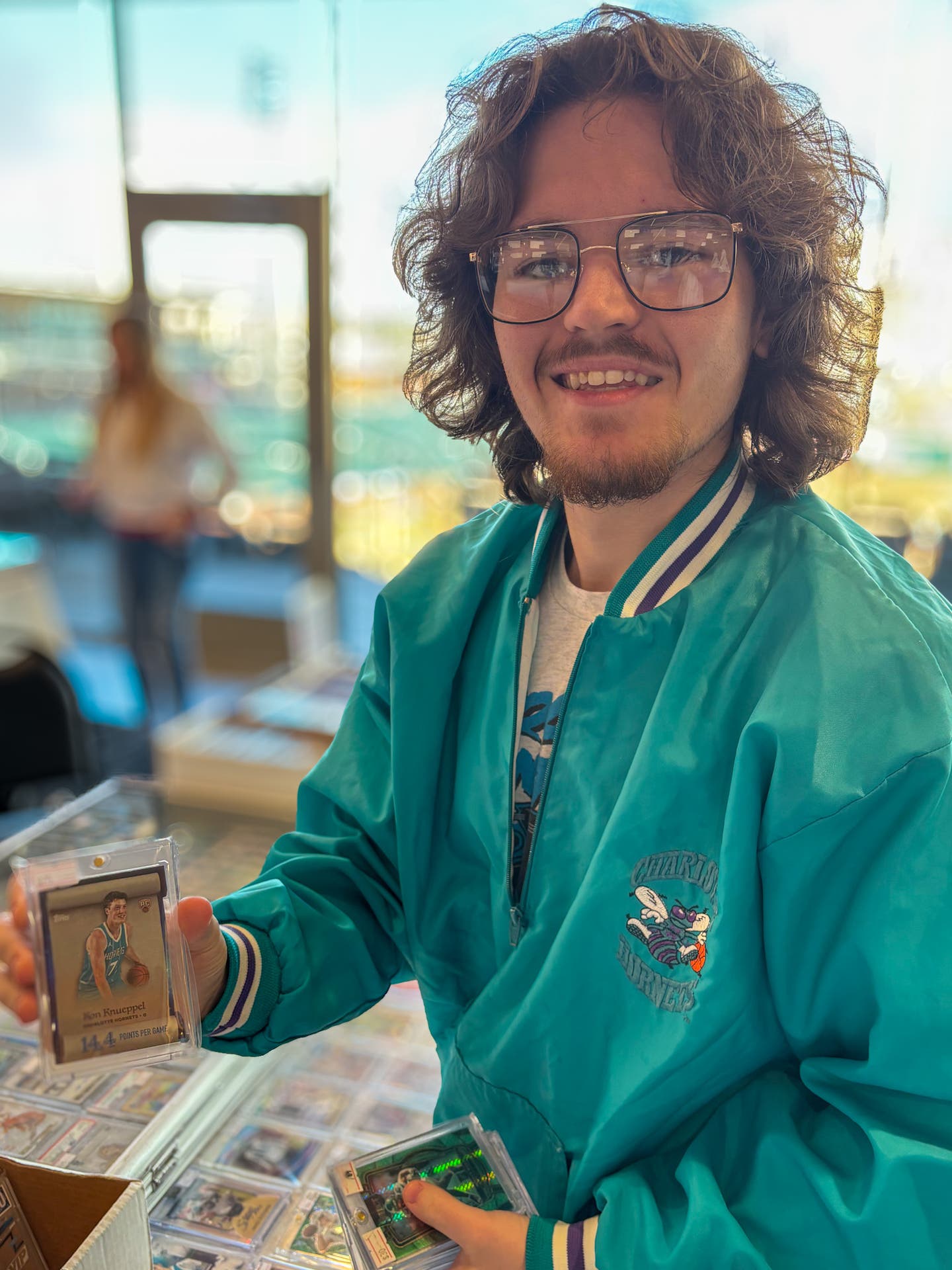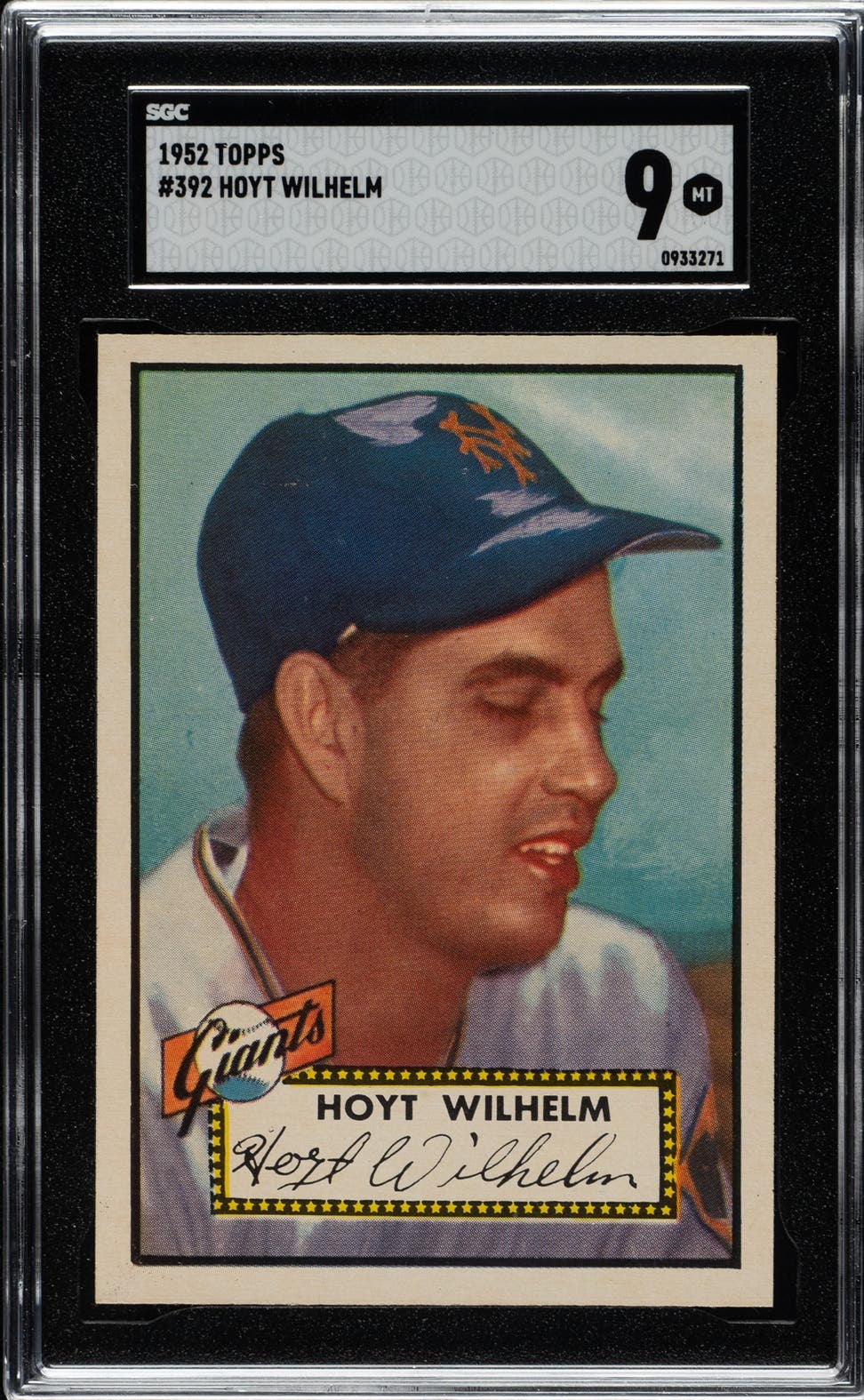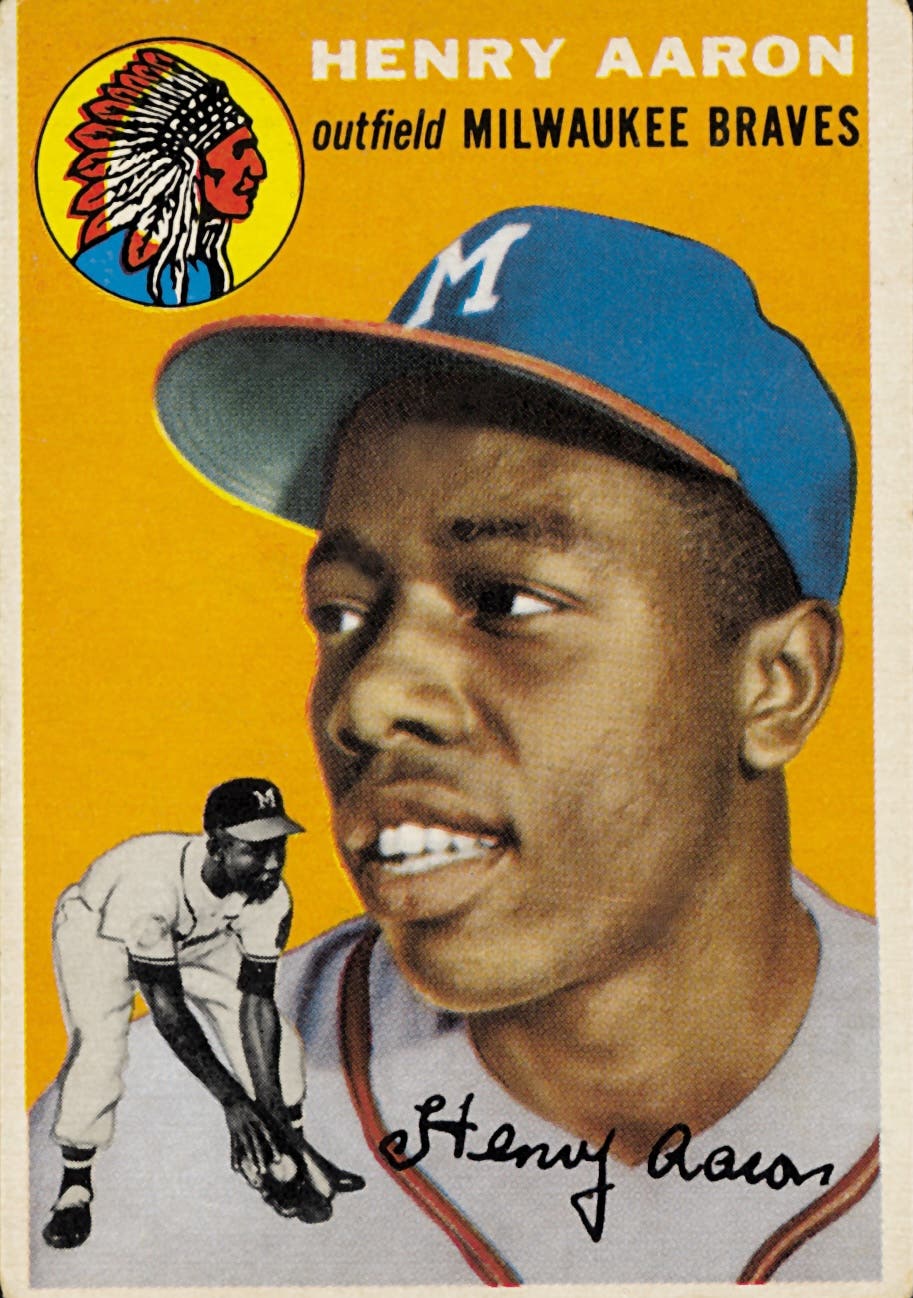News
When ‘Pawn Stars’ needs a sports memorabilia expert, Jeremy Brown is the man they call
By Kevin Nelson
Jeremy Brown, the sports card and memorabilia expert for “Pawn Stars” and a Las Vegas memorabilia shop owner, says there are pros and cons to being a memorabilia dealer in a city that attracts so many tourists, from all over.
Pro: “It’s good for selling. A lot of people come here from all over and they want to take home something from Vegas.”
Con: There are no major professional teams. “There’s no real focus. The shop is hard to stock because we have to carry a little bit of everything.”
This, however, is changing. Ice hockey is coming to the Nevada desert, as the new NHL Las Vegas Golden Knights will begin play in the fall. Then there is the coming move of the NFL Raiders to Vegas in 2020, after the building of a new football stadium near the McCarran Airport close to the Strip.
“Hopefully it’ll all be Golden Knights and Raiders,” said Brown, which would help simplify the merchandise stocking issues at his shop, Ultimate Sports Cards and Memorabilia.
Of course, Brown, 40, has a uniquely visible advantage that sets him apart from other card and memorabilia dealers: his ongoing role as the go-to sports memorabilia guy on the History Channel’s long-running reality show, “Pawn Stars.” If the show’s star Rick Harrison or his son Corey have a question about a vintage Topps Mantle card or a Depression-era jersey or bat they are thinking about buying for their pawn shop, Brown is the man they call to provide an expert’s opinion.
One thing he has learned in his seven years and 50 to 75 episodes on the show: The rarity of a thing does not necessarily equate to its monetary value.
“Just because it’s rare doesn’t mean it’s valuable,” he said. “It’s only worth what somebody is gonna pay for it.”
Brown shared these and other thoughts while sitting at his desk in the back office of his shop in the funky and entertaining Fremont Street arts district just off South Las Vegas Boulevard. His phone rang once during our talk; his dial tone is the “Monday Night Football” theme. Occasionally if a fact did not easily come to mind, he would turn and look it up on his computer.
Tucked away in a canopied mall area of open air bars, touristy souvenir shops and cafés such as the Heart Attack Grill (“Over 350 Lbs. Eats Free,” says the sign), his shop’s location is ideal at least in one respect. It’s only a mile from the Gold & Silver Pawn Shop, the Harrison family’s real-life pawn shop that serves as the setting for the TV series and is a magnet for fans from around the world.
“People love history,” Brown said, when asked why the show remains so popular after ten years on the air, “and they love monetizing history.”
Tour buses filled with tourists from Rhode Island to Japan descend daily on the Gold & Silver. After they’re done there they travel next to Brown’s shop and the shop of a toy expert who also appears on the show. Brown opened his first store in Vegas more than a decade ago. But once he became known on “Pawn Stars” he relocated to his current digs to become a stop on the tour and take advantage of the daily influx of 20 to 100 people per day wanting to take home something from Vegas.
“What are people looking for? Lots of people ask me that.” Brown figures he has about 150,000 items in his shop, his goal being to have as diverse an inventory as possible in order to spark the interest of the diverse crowd that pours in on those buses.
“Some are looking for inexpensive souvenirs while others are more interested in an investment piece. Canadians want hockey. UK and Australia, they know Michael Jordan and basketball. It’s really spread out,” he said.
Growing up in Dallas as a Cowboys fan, Brown came to the desert to go to college and has really never left. After graduating from UNLV and working on The Strip, he returned to his childhood interest of collecting and made a business out of it in his new home.
He has now been buying and selling memorabilia long enough that he admits he has become somewhat “desensitized�� to some of the rare pieces he sees on “Pawn Stars.”
“Initially when I began the show I was like a kid in a candy store,” he said. “But if you see it as frequently as I have, you lose the wonder of it sometimes. Still, there is some amazing stuff.”
One of his favorite episodes that he appeared in involved a 1932 program from the NFL’s first-ever playoff game, this between the Portsmouth Spartans (later to become the Detroit Lions) and Chicago Bears. They played to a regular season tie, after which a one-game championship playoff was held. The game programs were stored in a building that caught fire and burned.
A scarce few of these programs, charred by fire, have survived, and the owner of one of them brought it in to the Gold & Silver wishing to sell it on “Pawn Stars.”
“In this case,” Brown recalled, “Corey bought it without me. He paid X amount for it, then brought it to me and I got to talk about it on the show and tell the history of it. It was such a unique thing, and very specific.”
Although the program was authentic, Brown recognizes that not everything being bought and sold in the industry is.
“When there’s money to be made, unfortunately there’s going to be fraud. People try to sell us things and we have to be on our toes. Figuring out values is the easy part. Figuring out the legitimacy of things is harder. There are things I’ve been wrong about in the past and it’s hurt me,” he added. “But it’s also helped me because now I know what to look out for.”
Out-of-towners who are coming to Vegas email him to see if it’s worth it for them to bring in pieces from their collections to sell. Many more memorabilia sellers approach “Pawn Stars” with the idea of appearing on the show. If the producers or the Harrisons aren’t interested, they may refer them to Ultimate Sports Cards to see if their wares hold any interest for Brown.
“I consider myself very fortunate to have this unique opportunity,” he said. “Most card shops, I don’t see how they survive. The competition from wholesalers online and case breakers online, it’s tough. It’s too hard to compete with people who don’t have a lease. It’s sad that there’s not the card shops there were when I was growing up, but I fully understand why.”
Nevertheless Brown knows not to hold an autograph signing session at his store, or if he does, only in special circumstances.
“Unless you’re on a busy part of the Strip,” he said, “signings are really hard in this town.”
He brought a store employee into the room to tell the story of how Mickey Mantle, in the early 1990s at the height of his signing popularity, appeared in Vegas at an autograph session.
But virtually nobody showed up. No kids, no adults, nobody except a few stragglers here and there. A bored and frustrated Mantle turned to the promoter and said, “I could sell more autographs in an Oklahoma cow patch.”
This was the last time the legendary Yankee appeared in the desert to sign.
Kevin Nelson is the author of Operation Bullpen: The Inside Story of the Biggest Forgery Scam in American History. A recent article in Sports Collectors Digest by him was an interview with Brian Biegel, director of ESPN’s 30 for 30 film “The Counterfeiter.”








